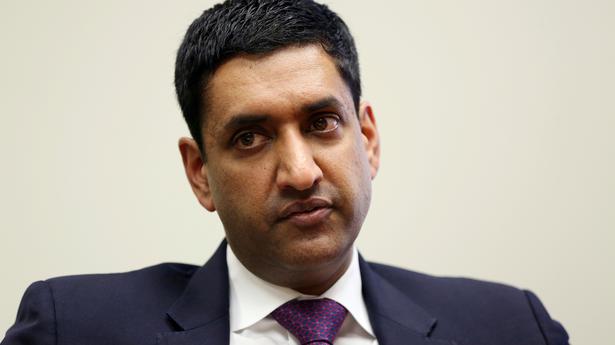
U.S. President Biden will expedite India-specific CAATSA sanctions waiver because he has the political mileage: Ro Khanna
The Hindu
Washington The recent India-specific CAATSA sanctions waiver by the U.S. House of Representatives is
The recent India-specific CAATSA sanctions waiver by the U.S. House of Representatives is the most consequential vote since the civilian nuclear deal, an influential Indian-American Democratic Congressman has said, asserting that U.S. President Joe Biden will expedite the waiver because he has the “political mileage” and the backing of 300 members of the Congress.
In July, the U.S. House of Representatives passed a legislative amendment that approves an India-specific waiver for punitive CAATSA sanctions for its purchase of the S-400 missile defence system from Russia.
Authored and introduced by Indian-American Congressman Ro Khanna, the amendment urges the Biden administration to use the authority to provide India with a Countering America’s Adversaries Through Sanctions Act (CAATSA) waiver to help deter aggressors like China.
“The U.S.-India relationship has never been more critical. When you see an expansionist China at an expansionist Russia, I believe this is going to be a defining relationship of the 21st century. And we needed to send a clear message to India that America values this relationship as very important,” Mr. Khanna told PTI in an interview.
The legislative amendment was passed last month by voice vote as part of an en bloc (all together as a single unit) amendment during floor consideration of the National Defence Authorisation Act (NDAA).
The legislation is yet to be passed by the United States Senate before it can be sent to President Biden to be signed into law.
“Having the threat of sanctions hanging over India undermines our ability to build that strong strategic relationship. It undermines the ability to strengthen the QUAD with Australia and Japan,” the 45-year-old Democrat said.

The 29th edition of the Conference of Parties (COP29), held at Baku in Azerbaijan, is arguably the most important of the United Nations’ climate conferences. It was supposed to conclude on November 22, after nearly 11 days of negotiations and the whole purpose was for the world to take a collective step forward in addressing rising carbon emissions.










